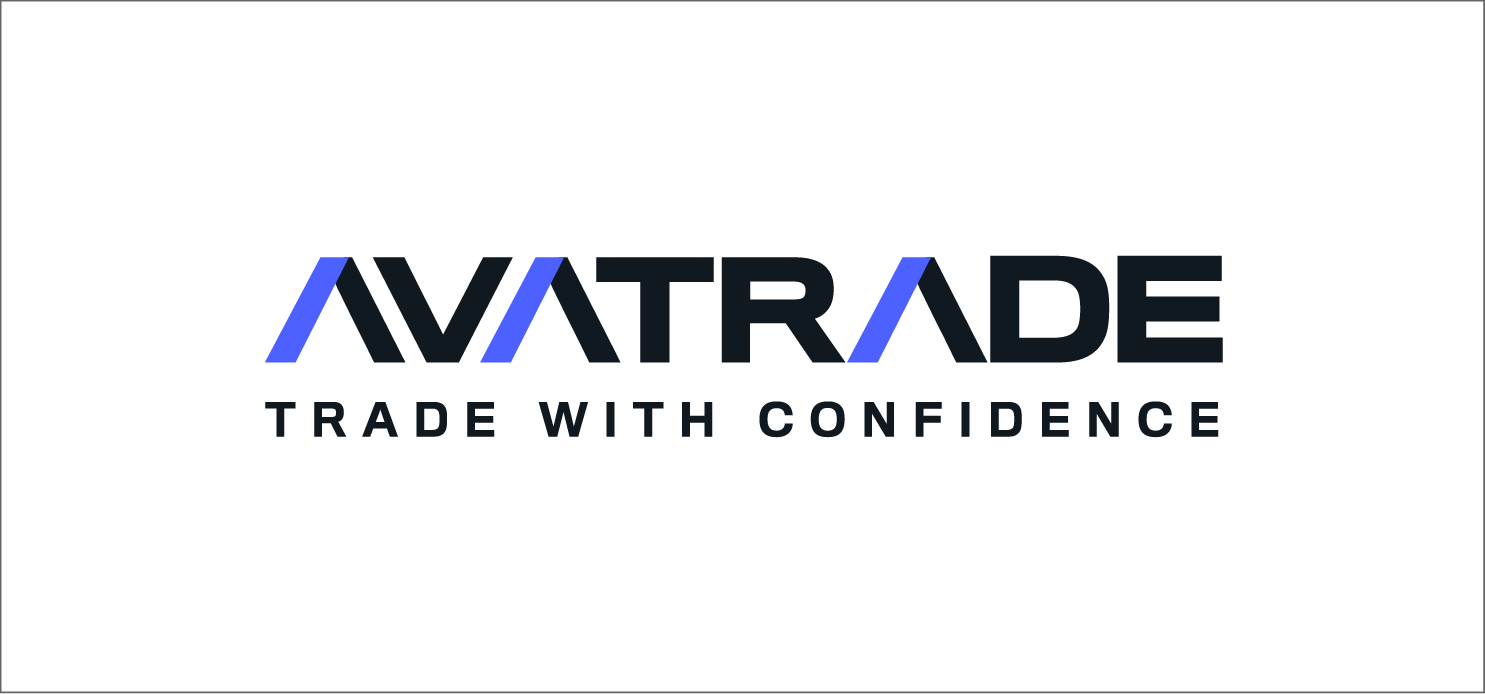Best Online Stock Brokers & Trading Apps in the UK (2026)
All products and services featured are independently selected by WikiJob. When you register or purchase through links on this page, we may earn a commission.
- Top 9 UK Stock Brokers List & Trading Apps (January 2026)
- Best UK Online Brokerage Sites & Trading Apps – Comparison Chart (January 2026)
- Best Online Brokers UK – Reviewed (2026)
- What Is a Stock Broker?
- What Are the Different Types of Stock Brokers?
empty
empty
empty
- How Do Stock Brokers Make Money?
- Are UK Stock Brokers Regulated?
- Choosing the Best Online Broker UK – Key Considerations
empty
empty
empty
empty
empty
empty
empty
- How to Open a Brokerage Account UK?
- Frequently Asked Questions
- Final Thoughts
As bank interest rates have been at an historic low for over a decade, savers are increasingly turning their attention to the stock market in a bid to make the most of their money.
Thanks to Hollywood films such as Wall Street and The Wolf of Wall Street, there are many misconceptions about what the stock market is, and who can invest.
The stock market isn’t just for those with large sums of money. It is also accessible for anyone who wants to try and improve their savings. But how do you get started?
The first step is to find a UK stock broker. This is someone who can manage your investment on your behalf.
To find out more about how you can start to invest in stocks and shares, we’re taking a look at what stock brokers are, and how to find the right stock broker for you.
Top 9 UK Stock Brokers List & Trading Apps (January 2026)
- Best online broker UK for short-term exposure to markets (CFD trading): Plus500
- Best stock broker UK for customer service: Pepperstone
- Best broker UK for learning from others: eToro
- Best UK broker for welcome bonus: AvaTrade
- Best online stock broker UK for feature-stuffed mobile app: Vantage Markets
- Best broker in UK for trading academy: XTB
- Best broker with comprehensive trading package: IG
- Best for a wide array of global stocks: Saxo
- Best online broker for Millennials: Robinhood
Now we’ve explained more about what stock brokers are and how to choose one, here is a quick overview of some of the best stock brokers in the UK.
This list of best brokers and best trading platforms provides you with a brief look at different platforms, giving you further insights to make informed decisions.
It’s important to remember that this list isn’t exhaustive and shouldn’t constitute financial advice.
Before deciding to invest with any broker, make sure that you have undertaken further due diligence to check on its reliability, its success rate, its fees and its customer care.
Best UK Online Brokerage Sites & Trading Apps – Comparison Chart (January 2026)
Regulation FCA, ASIC, CySEC, MAS, FSCA, FMA, FSP | Account Types CFD | Minimum Deposit $100 | Trading Platform Proprietary (Web and App) | Commission/Spreads Variable | |||
Regulation FCA, DFSA, CySEC, BaFIN, ASIC, CMA, SCB | Account Types CFD | Minimum Deposit £0 | Trading Platform cTrader, MT4/MT5, App, TradingView, Pepperstone's platform | Commission/Spreads Variable | |||
Regulation ASIC, FCA, CySEC | Account Types CFD, Stock, Crypto | Minimum Deposit $50 | Trading Platform Proprietary (Web and App) | Commission/Spreads Variable | |||
Regulation ASIC, FSCA, B.V.I FSC, Central Bank of Ireland | Account Types CFD | Minimum Deposit $100 | Trading Platform MetaTrader 4, App | Commission/Spreads Variable | |||
Regulation Not specified | Account Types CFD, Spread Betting | Minimum Deposit £200 | Trading Platform Proprietary (Web and App) | Commission/Spreads Variable | |||
Regulation FCA, KNF, CySEC | Account Types CFD, Stock | Minimum Deposit £250 | Trading Platform xStation, MetaTrader 4, App | Commission/Spreads Variable | |||
Regulation FCA | Account Types CFD, Spread Betting | Minimum Deposit £250 | Trading Platform Proprietary (Web and App) | Commission/Spreads Variable | |||
Broker Saxo | Regulation FCA and others | Account Types Forex, CFDs, Stocks | Minimum Deposit None | Trading Platform SaxoTraderGO, SaxoTraderPRO | Commission/Spreads Variable | ||
Broker Robinhood | Regulation SEC, FINRA | Account Types CFD, Invest | Minimum Deposit No minimum | Trading Platform Proprietary (App) | Commission/Spreads No Commission |
61% of retail investor accounts lose money when trading CFDs with eToro. You should consider whether you understand how CFDs work, and whether you can afford to take the high risk of losing your money.
Best Online Brokers UK – Reviewed (2026)
1. Plus500
Pros
- No buy/sell commissions and tight spreads
- Leverage of up to 1:30
- FREE unlimited Demo
- 2,800+ trading instruments
- Real-time quotes and advanced analytical tools
- Fast and reliable order execution
Cons
- No API integrations
- No social copy trading
Best for: Short-term exposure to markets
Minimum deposit: £100
Withdrawal fees: Up to five withdrawals per month for free. More than this incur a $10 fee; overnight funding fee; currency conversion fee; inactivity fee; guaranteed stop order fees
Tradable assets: CFDs
Number of stocks: 1,000+
Plus500 is suited for experienced investors wanting to invest solely in CFDs.
It is designed for those who want short exposure to markets. You are not purchasing stock, instead, you are trading CFDs.
The Plus500 trading app is a comprehensive platform that provides users with the opportunity to engage in trading various financial instruments across global markets. With a user-friendly interface and a range of features, the app caters to both beginners and experienced traders.
At the core of the Plus500 app is its diverse range of tradable assets, including stocks, cryptocurrencies, forex, commodities and indices. This allows users to build a diversified investment portfolio that suits their preferences and risk tolerance. The app's intuitive design makes it easy to navigate through different markets, analyze real-time price movements and execute trades efficiently.
One of the standout features of the Plus500 app is its demo account functionality, which provides users with a risk-free environment to practice trading strategies and familiarize themselves with the platform's features. This is particularly valuable for beginners who want to gain hands-on experience before committing real funds.
Furthermore, the app offers a range of tools and features for technical and fundamental analysis, helping users make informed trading decisions. The availability of real-time charts, indicators, and alerts empowers traders to stay updated on market trends and seize potential opportunities.
2. Pepperstone
Pros
- Extensively regulated
- No minimum deposit
- Low fees and mostly free withdrawals
- Good customer service
Cons
- No investor protection for clients outside UK, EU and EEA
- Withdrawal fee for international bank wires
- CFDs only
Best for: Customer service
Minimum deposit: £0
Withdrawal fees: £0
Tradable assets: Forex, Commodities, Cryptocurrencies (to pro clients in the UK only), Index CDFs, spread betting, ETFs and Stocks CFDs
Available trading platforms: TradingView, MT4, MT5, cTrader
Pepperstone is a highly regarded stock broker that offers exceptional 24-hour customer service for users.
This is hugely beneficial for investors wishing to take advantage of time differences across 14 different stock markets from around the world.
The Pepperstone trading app offers traders a user-friendly and efficient platform to access global financial markets. Known for its focus on forex and CFD trading, the app provides a range of tools and features for both beginner and experienced traders.
With the Pepperstone app, users can trade various financial instruments, including forex currency pairs, commodities, indices and cryptocurrencies.
The app's intuitive design allows for easy navigation through different markets and seamless execution of trades.
One of the app's highlights is its competitive pricing and fast execution speed, which are crucial factors for active traders. Additionally, Pepperstone provides access to a variety of trading platforms, catering to different trading styles and preferences.
The app also offers real-time market data, advanced charting tools, and technical analysis indicators to help users make well-informed trading decisions. This, coupled with the option for demo accounts, allows users to practice and refine their strategies before trading with real funds.
3. eToro
Pros
- Regulated by FCA, ASIC
- Zero commission on stocks
- Social and copy trading
Cons
- More expensive than most of its competitors
- No MetaTrader platforms
The below content does not apply to US users
Best for: Learning from others
Commission: £0 (0% commission applies to stock investment)
Minimum deposit: £50
Withdrawal fees: £5
Tradable assets: Stocks and ETFs (exchange-traded funds), Cryptocurrencies, CFD trading
Number of stocks: 3,000+
eToro is one of the most popular online stock brokers in the UK. Over the past 15 years, it has developed a strong reputation as the best online stock broker for beginners and experienced investors alike.
The site allows you to invest in stocks and shares from across the world, including the London Stock Exchange and the New York Stock Exchange.
The eToro trading app is a comprehensive platform designed for trading and investing in a variety of financial instruments. Users can access global markets and trade assets such as stocks, cryptocurrencies, commodities, indices and forex.
One of the distinctive features of the eToro app is its social trading aspect, which allows users to connect with fellow traders, observe their trading activities and even automatically replicate their trades.
This social trading feature is particularly helpful for those who are new to trading or seeking to diversify their investment strategies.
The app also offers a CopyTrader feature, enabling users to select successful traders and mirror their trading actions. This functionality is valuable for individuals who may not have extensive trading experience but wish to benefit from the expertise of more experienced traders.
Real-time market data, charts and analysis tools are integrated into the app, empowering users to make informed trading decisions. The ability to track price movements, set alerts, and perform technical and fundamental analysis provides users with comprehensive tools to navigate the markets effectively.
Mobile accessibility is a key component of the eToro app, allowing users to trade and manage their investments while on the go. With the app, users can monitor their account balances, execute trades, and stay up-to-date with market trends from their mobile devices.
Account management is straightforward through the app, allowing users to deposit and withdraw funds, review transaction history and monitor their account balances. Additionally, eToro's adherence to regulatory standards and implementation of security measures ensures the safety of users' funds and personal information.
The user interface of the eToro app is designed to be user-friendly and intuitive. This design facilitates easy navigation through different sections of the app, simplifies the analysis of market data, and streamlines the execution of trades.
To find out more, read our eToro review.
61% of retail investor accounts lose money when trading CFDs with eToro. You should consider whether you understand how CFDs work, and whether you can afford to take the high risk of losing your money.
4. AvaTrade
Pros
- Worldwide regulated
- Multiple platforms – MT4, MT5, etc.
- 20% welcome bonus
- Educational content
- Wide rage of payments methods
- Fixed spreads
Cons
- You can’t buy stocks
- Quarterly and annual inactivity fees
- Custumer support is not available 24/7
- No bonus for EU based clients
- No US clients accepted
- Imitated crypto assets
Best for: Welcome bonus
Minimum deposit: May vary
Withdrawal fees: AvaTrade typically does not charge withdrawal fees
Tradable assets: Forex currency pairs, commodities, stocks, indices and cryptocurrencies
Available trading platforms: Proprietary platform and the popular MetaTrader 4 (MT4) and MetaTrader 5 (MT5) platforms.
AvaTrade is a CFD Regulated broker with +1,000 financial instruments and multiple trading platforms. It has been operating since 2006.
The AvaTrade trading app provides traders with a comprehensive platform to access global financial markets and trade a variety of assets. With a focus on forex and CFD trading, the app offers a range of features that cater to traders of all levels of experience.
Through the AvaTrade app, users can trade forex currency pairs, commodities, stocks, indices and cryptocurrencies. The platform's user-friendly interface makes it easy to navigate between different markets and execute trades efficiently.
A notable feature of the AvaTrade app is its commitment to user education. The app offers a wealth of educational resources, including video tutorials, webinars and market analysis, which are valuable for both novice and seasoned traders looking to enhance their trading knowledge.
The app also provides real-time market data, advanced charting tools, and technical indicators to help users make informed trading decisions. Additionally, the app's demo account option allows users to practice their trading strategies without risking real funds.
5. Vantage Markets
Pros
- Regulated by FCA, ASIC and VFSC
- Low forex fees
- No inactivity fee
- No withdrawal or deposit fee
- Good MetaTrader add-ons
- Social trading
Cons
- CFD trading carries risk
- $50 is needed to start trading
Best for: Feature-stuffed mobile app
Minimum deposit: Based on the account type and region
Withdrawal fees: No withdrawal fees
Tradable assets: Forex currency pairs, commodities, indices, stocks and cryptocurrencies
Available trading platforms: Proprietary trading platform
The Vantage Markets trading app is a robust and versatile platform that provides traders with the tools to access global financial markets and engage in trading a diverse range of assets.
Designed to accommodate both beginners and experienced traders, the app offers an intuitive interface and a range of features to enhance the trading experience.
A notable feature of the Vantage Markets trading app is its accessibility to a wide array of tradable assets.
Users can trade forex currency pairs, commodities, indices, stocks, cryptocurrencies, and more. This expansive selection enables traders to build diversified portfolios and take advantage of various market opportunities.
The app's interface is designed with user-friendliness in mind, allowing users to easily navigate through different markets, access real-time market data and execute trades efficiently. The platform also provides a comprehensive set of charting tools and technical indicators, empowering traders to conduct thorough analysis and make informed trading decisions.
Vantage Markets places emphasis on customer support and education. The trading app offers access to a range of educational materials, including video tutorials, webinars, and market analysis, enabling traders to enhance their trading skills and stay informed about market developments.
Additionally, the Vantage Markets trading app offers risk management tools, such as stop-loss and take-profit orders, to assist traders in managing their risk exposure. A demo account option is also available, allowing users to practice trading strategies without risking real capital.
6. XTB
Pros
- Regulated by the FCA
- Low forex fees
- Fast withdrawal and deposit with no fee
- Live chat customer service
Cons
- Limited product portfolio
- High fees for stock CFDs
Best for: Trading accademy
Minimum deposit: Can vary
Withdrawal fees: No withdrawal fees for standard transactions
Tradable assets: Forex currency pairs, indices, commodities, stocks, cryptocurrencies and more
Available trading platforms: xStation 5
XTB was founded in 2002 and has an excellent reputation for customer service.
The XTB trading app is a versatile platform that offers traders the ability to access a wide range of financial markets and trade various assets. Designed with both novice and experienced traders in mind, the app provides a user-friendly interface and a suite of features to enhance the trading experience.
One of the key strengths of the XTB trading app is its diverse offering of tradable assets. Users can trade forex currency pairs, commodities, indices, stocks, cryptocurrencies, and more. This extensive selection allows traders to create diversified portfolios and capitalize on various market opportunities.
The app's interface is designed for ease of use, enabling users to navigate different markets, access real-time market data, and execute trades seamlessly. The platform also provides a range of charting tools and technical indicators, empowering traders to conduct in-depth analysis and make informed trading decisions.
XTB places a strong emphasis on education and research. The app offers educational resources, including video tutorials, webinars and market analysis, to help traders enhance their trading skills and stay informed about market trends.
Moreover, the XTB trading app provides risk management tools, such as stop-loss and take-profit orders, to help traders manage their risk effectively. Additionally, a demo account option allows users to practice trading strategies without risking real funds.
CFDs are complex instruments and come with a high risk of losing money rapidly due to leverage. 69-80% of retail investor accounts lose money when trading CFDs with this provider. You should consider whether you understand how CFDs work and whether you can afford to take the high risk of losing your money.
7. IG
Pros
- Highly regulated
- MetaTrader 4 (MT4)
- Over 10,000 instruments
- Available in the UK and US
- 24/7 customer support
Cons
- High fees
- No deposit compensation scheme for US accounts
- No copy trading
- Inactivity fees
Best for: Traders of all level
Minimum deposit: Varies based on region and account type
Withdrawal fees: No withdrawal fees for standard withdrawals
Tradable assets: Forex, commodities, indices, shares and cryptocurrencies
Available trading platforms: Proprietary platform and the MetaTrader 4 (MT4) platform.
The IG trading app stands out as a versatile and comprehensive platform for traders to access a wide range of financial markets.
With a strong reputation in the trading industry, the app offers an array of features that cater to traders of various levels of expertise.
One of the key strengths of the IG trading app is its extensive selection of tradable instruments. Users can trade forex currency pairs, commodities, indices, shares, cryptocurrencies and more. This diversity enables traders to build diverse portfolios and capitalize on various market opportunities.
The app's user-friendly interface is designed to streamline the trading process. It allows users to navigate seamlessly between different markets, access real-time market data and execute trades with ease.
The app also offers a range of charting tools and technical indicators to aid in making informed trading decisions.
An important aspect of the IG app is its focus on research and analysis. The platform provides users with access to a wide range of research materials, including market news, analysis and insights from experts. This information empowers traders to stay up-to-date with market trends and make well-informed trading choices.
The app's risk management features, such as stop-loss and take-profit orders, provide traders with tools to manage their risk effectively. Additionally, the IG app offers a demo account option, allowing users to practice trading strategies in a risk-free environment before trading with real funds.
8. Saxo
Pros
- Heavily regulated
- Good product portfolio
- Low forex fees
- No withdrawal or inactivity fees
Cons
- Does not accept US clients
- High fees for options, futures and bonds
Saxo is highly regarded as one of the best online stock brokers and trading apps due to its robust offerings that cater to both novice and experienced investors.
Saxo offers its clients access to over 23,500 stocks from more than 50 global markets, including major exchanges in London, New York, Hong Kong, and many others. This extensive range allows investors to diversify their portfolios internationally.
Saxo provides two primary trading platforms – SaxoTraderGO and SaxoTraderPRO. Both platforms are highly regarded for their advanced features, intuitive design, and mobile accessibility, making them suitable for trading on the go. SaxoTraderGO is designed for all traders and offers ease of use with comprehensive tools and features, while SaxoTraderPRO caters to professional traders requiring more complex tools and multi-screen setups.
Saxo offers competitive pricing on stock trading, with transparent fee structures that are particularly advantageous for active traders. The broker provides detailed information about its commissions, which can vary by region and the volume of trades, allowing investors to manage their trading costs effectively.
For new investors, Saxo’s comprehensive range of educational materials—including webinars, videos, and articles—helps demystify stock trading and investment strategies. These resources are valuable for both beginners learning the basics and more experienced traders looking to refine their skills.
As a globally regulated entity, Saxo offers a secure trading environment. It adheres to strict regulatory standards, ensuring a high level of investor protection and financial integrity across its operations.
Saxo provides excellent customer service with support available through multiple channels, including live chat, email, and phone. This responsive support ensures that clients can receive timely assistance with their accounts or trading activities.
9. Robinhood
Pros
- No commission fees
- No inactivity fee
- No minimum deposit
- User-friendly interface
- Trade fractional shares
- Straightforward, simple option for beginners
Cons
- Lacks educational and research resources
- Unlikely to suit advanced traders
- Limited product offerings
- 24/7 customer support only via email and callback request
Best for: Millennials
Minimum deposit: No minimum deposit requirement
Withdrawal fees: No withdrawal fees for standard ACH transfers, but fees may apply for expedited transfers
Tradable assets: Stocks, ETFs, options and cryptocurrencies
Available trading platforms: Mobile app
This app is a favorite among millennials wanting to practice trading with small budgets. It is free to use with no commission fees.
Features include:
- Real-time market data
- Various investment options
- Zero balance requirement to open an account
- Instant access to deposited cash
While it does make trading accessible, the app lacks research and educational resources.
It is a straightforward app with limited portfolio analysis and customer service, but it does meet a trader's basic needs.

What Is a Stock Broker?
A stock broker is someone who buys stocks and shares on behalf of someone else. This may be on behalf of a commercial organization or a person.
The stock broker looks after the investment portfolio. They will work as an intermediary between the stock exchange and the investor.
Stock brokers can work in different ways:
- Some will take full management of the investment and make decisions on behalf of their client (known as a discretionary way of working).
- Others will work in an advisory capacity where they will advise and offer suggestions but only act when given authorization by their client.
- The final option is those who are execution-only. This is when stock brokers only make the investments that they are directed to. They will not offer any advice or support.
61% of retail investor accounts lose money when trading CFDs with eToro. You should consider whether you understand how CFDs work, and whether you can afford to take the high risk of losing your money.
What Are the Different Types of Stock Brokers?
The UK stock market has grown enormously in recent years. If you are keen to start investing your money, then you must first understand the different types of stock brokerages:
Full-Service Brokers
These offer everything you need so that you do not need to worry about managing your wealth portfolio.
Your broker will make recommendations and offer advice and guidance. They’ll manage investments on your behalf and will provide you with comprehensive reports giving details of your portfolio performance.
Discount Brokers
These will be more affordable than full-service brokers. They will only act upon a client’s orders – so whilst they will manage the actual buying/selling of stocks, they will not provide any advice or support.
It’s more affordable but more time-consuming for investors who will need to stay up to date with their investments.
Online Stock Brokers
These can be used by new investors as well as experienced investors. You’ll have the opportunity to manage your wealth portfolio and you can make new investments at the click of a button.
How Do Stock Brokers Make Money?
Typically, a stock broker will take a small commission, or they will charge specific fees for managing your investment.
Are UK Stock Brokers Regulated?
If you are providing money to a stock broker to act on your behalf, you must have confidence that they are fully regulated and trustworthy.
In the UK, there are stringent checks which are used to confirm the viability of stock brokers. This means that the London Stock Exchange is one of the strongest in the world. Investors can have confidence that they are fully protected from fraud and/or financial mismanagement.
Reputable UK stock brokers should be a member of the Financial Conduct Authority (FCA). Not only does this provide peace of mind for investors that the broker is following operational guidelines, but it also provides insurance. UK retail clients can receive compensation up to £85,000.
Before appointing any stock broker, you should check to see that they are listed within the Financial Services Register.
Choosing the Best Online Broker UK – Key Considerations
When it comes to finding a UK stock broker, there are many different things that you should consider.
It’s important to remember that each stock broker will work differently. You need to consider whether you are looking for a stock broker who can manage your investment on your behalf or whether you want to remain in control.
Listening to References but Keeping an Open Mind
An easy way to find a UK stock broker is to find references and recommendations from other investors.
Listen to what they have to say but remember to keep an open mind. Different investors will have different needs – so what works well for one person, may not work for another.
This is particularly true if you are new to the stock market but are seeking advice from an experienced investor.
Is Your UK Stock Broker Regulated?
As previously mentioned, make sure you check on the Financial Services Register to see if your chosen broker is regulated.
Your broker should have details of professional memberships available on their website.
What Are the Trading Fees?
Stock brokers will make their money via commissions and trading fees. It may seem simple to choose the UK stock broker with the lowest possible trading fees, but that could cost you far more money in the long run.
Fees may differ depending on whether you are a casual trader, a beginner or an experienced investor.
It’s worthwhile comparing fees to your budget – this will help you to identify the right brokerage for your investment needs.
You may also need to consider whether you are charged a flat-fee or a percentage fee. Some brokers will charge for each transaction (deposit and withdrawals) which can become pricey. You may even be charged fees for inactivity on your account.
Before signing up with any brokerage, make sure that you are aware of the terms and conditions.
What Tradable Assets or Other Markets Are Offered?
As well as trading stocks and shares, many brokers (particularly online brokers) may offer opportunities to trade other assets such as foreign exchange currencies (forex).
If you are considering diversifying your investment portfolio, you may be interested in working with a stock broker with experience in other markets.
What Stock Trading Platforms Are Available?
A trading platform is a specific software that allows individual investors and stock brokers to make trades.
Some UK stock brokers may offer easy access to their trade platforms. This is typically in exchange for having full management of the investment.
Trading platforms can vary hugely and everyone is looking for the best online trading platform, but you will find that all of them have their pros and cons.
Some may have intuitive and easy-to-understand dashboards that allow investors to see how their investment is performing. Others may be complex, real-time charts and news feeds that are designed specifically for stock brokers to monitor the market.
Investors may wish to think about what features they need before deciding on a particular trading platform. For example, do they need the information to help with immediate decision making or are they looking for a platform that could make predictions and strategies for future investments?
The fees charged for trading platforms will also vary. You can expect to pay lower fees for trading platforms with reduced features.
61% of retail investor accounts lose money when trading CFDs with eToro. You should consider whether you understand how CFDs work, and whether you can afford to take the high risk of losing your money.
What Is the Minimum Amount of Money I Need to Invest in Stocks and Shares?
Stock brokers and online trading platforms will have different minimum requirements for investments. Some may be as little as £10, whilst other interactive brokers may require a minimum deposit of £100+.
Pay attention to the terms and details to establish how much you should invest.
Customer Care
It’s important to remember that if you are investing your money into a UK stock broker, you need to feel confident that they are supporting you and looking after you as best they can.
Look at customer reviews/testimonials to find out what people are saying.
If you are using an online stock broker, then try sites such as Feefo or TrustPilot to see if there are any advantages/disadvantages. You should be looking to work with a UK stock broker that offers consistent levels of customer care.
If you are trading online, is the dashboard easy to understand? Is it suitable for beginners or do you need extensive experience? Is there a helpline number to call if you need support?
If you’re working with a UK stock broker, what advice and guidance are they giving you? Do you feel that you are receiving a high level of customer care and satisfaction?
Remember that if you are choosing to invest money with a UK stock broker, you are paying for a service. Don’t be afraid to expect high levels of client care and attention.
How to Open a Brokerage Account UK?
Step 1. Research and Choose a Broker
Begin by researching reputable brokerage firms in the UK, considering crucial factors like fees, available markets, customer support, and user interface. Ensure the chosen broker aligns with your specific trading preferences and goals, providing a suitable foundation for your investment journey.
Step 2. Visit the Broker's Website
Initiate the process by accessing the official website of the broker you have chosen. This pivotal step involves visiting the online platform, where you will interact with the broker's services and initiate the account opening procedure. Ensure that you are on the selected broker's authentic and secure website to proceed confidently.
Step 3. Click on "Open an Account" or "Sign Up"
Find the option to initiate a new account on the broker's homepage, typically located prominently for easy access. Click on the designated button, often labeled as "Open an Account" or a similar option, to commence the account registration process.
Step 4. Fill in Personal Information
Supply your personal information, encompassing essential details such as your full name, address, date of birth, and nationality. Be prepared for additional requirements, as certain brokers may require extra information to complete identity verification procedures.
Step 5. Provide Financial Information
Disclose information regarding your financial status, employment details, and the source of income during the account setup process. This essential financial information aids brokers in evaluating your suitability for engaging in trading activities on their platform.
Step 6. Agree to Terms and Conditions
Thoroughly review and comprehend the terms and conditions outlined by the brokerage. Demonstrate your agreement to these terms by checking the appropriate box, affirming your acknowledgment and acceptance of the contractual conditions associated with your trading account.
Step 7. Verify Your Identity
Complete the identity verification process, a standard security and regulatory adherence requirement imposed by brokers. Furnish essential documents, including a government-issued ID, proof of address, and potentially a bank statement, as part of the verification procedure to ensure compliance with regulatory standards and enhance the security of your account.
Step 8. Choose Account Type
Opt for the specific type of trading account that aligns with your preferences, such as a standard, swap-free, or demo account. Additionally, choose your preferred base currency for the trading account, ensuring that it suits your financial preferences and facilitates a seamless trading experience.
Step 9. Deposit Funds
Initiate the funding of your trading account by depositing the necessary amount as required. Brokers provide diverse funding options, encompassing bank transfers, credit/debit cards, and e-wallets, offering flexibility to suit your preferred method of depositing funds into your trading account.
Step 10. Download Trading Platform (If Necessary)
If deemed necessary by the chosen broker, proceed to download their trading platform. Follow the instructions to install the platform on your device, ensuring seamless access to the trading tools and features essential for your trading activities.
Step 11. Start Trading
Once your account is funded and set up, you can explore the trading platform and execute trades.
Remember that the specific steps may vary slightly depending on your chosen broker.
Always follow the instructions provided by the selected brokerage and ensure that you understand the terms and conditions before proceeding.
Frequently Asked Questions
When it comes to investment apps in the UK, the best stock buying app for you ultimately depends on your specific needs. For example, new traders who might want to learn from others would benefit from using eToro – it’s one of the top investment apps, while more advanced traders will find the extra services and options at CMC Markets more appropriate.
MetaTrader 4 and 5 are probably the best known platforms to buy stock in the UK, but some traders prefer to use cTrader or even one of the proprietary platforms created by the broker that they are using.
You can buy stocks online in the UK using a best online broker like eToro, FxPro, Pepperstone or Plus500.
These are brokers that allow access to trading platforms so that you can buy and sell different stocks as and when you want to and keep track of your investments.
UK traders can choose from a number of different UK stock broker platforms, each with its own pros and cons.
When choosing a stock broker, it is important to carry out plenty of research. You should aim to find out your preferred stock broker’s reliability, success rates, fees and customer care before making a decision.
eToro is a popular online UK stock broker with an excellent reputation for both novice and experienced investors.
There are several considerations to make when choosing a stock broker.
As a minimum, you should find out whether your preferred stock broker is regulated by the Financial Conduct Authority (FCA), how much you can expect to pay in trading fees, which markets you will be able to trade on, which trading platform you will need to use, customer care provision and whether there is a minimum investment required to open an account.
You might also consider references or recommendations from other traders – just bear in mind that their needs may be different to yours. Aim to choose the stock broker that best meets your specific needs and trading style.
The eToro provide UK stock traders with access to more than 3,000 stocks.
Yes, it is possible to be a stock broker in the UK without a degree. You will need to have a strong knowledge of the financial markets and the practical skills needed to analyze financial portfolios and assets.
Whilst formal qualifications are not essential, training in areas like accounting, business or economics are useful.
You could also study for a qualification from an online academy such as Coursera. If you want to practice as a stock broker in the UK, you will need to apply for a licence to be accredited by the Financial Conduct Authority (FCA).
The London Stock Exchange (LSE), the primary stock exchange in the UK, opens at 8:00 a.m. (GMT) and closes at 4:30 p.m. (GMT) from Monday to Friday. It's important to note that there might be pre-market and after-hours trading on specific platforms, allowing traders to execute orders outside regular market hours.
Final Thoughts
As you can see, there is much to consider when choosing which UK stock broker to use. Different online stock brokers have their own strengths and weaknesses, and what suits one person may not suit another.
We like the eToro platform. There are enough features on eToro to attract seasoned investors, whilst not being too alarming for beginners. This means that you can use the information to inform your knowledge and start trading effectively.
The innovative CopyTrader™ feature is particularly beneficial to allow newcomers to ‘practice’ investing by seeing what others are doing.
Before you make a final decision on your chosen UK stock broker, we recommend that you spend time working your way through the list and making the most of the free trading demos.
Most stock brokers will allow you access to its platforms and databases and will provide you with ‘virtual’ funding. This means that you can practice your investments, and see which interfaces work well for you without using your personal money.
As you become attuned to using different stock brokers you may start to establish which is best for your ability, interest and knowledge.
Don’t invest in unless you’re prepared to lose all the money you invest.
WikiJob does not provide tax, investment, or financial services and advice. The information is being presented without consideration of the investment objectives, risk tolerance, or financial circumstances of any specific investor and might not be suitable for all investors. Past performance is not indicative of future results. Investing involves risk including the possible loss of principal.


























